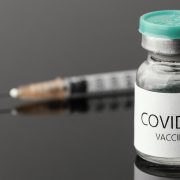The Procurement of Patented Covid-19 Vaccines for Public Purpose
Two months after first report from Wuhan that there was a pneumonia-like disease which later was associated with a coronavirus (Covid-19), the minister of health reported that South Africa had its first case. This was over a year ago. The country now has over 1,500,000 positive cases and the imperative to kick-start a vaccination drive is now more important than ever as the world seeks to emerge from this once-in-a-century pandemic.
As big pharma companies around the world scrambled to create a Covid-19 vaccine in a record time, a debate is swirling around, on the one hand, the patent monopoly given to a pharmaceutical company to make and distribute the vaccine it created and, on the other hand, to the right of every person to be vaccinated.
What is a Patent?
A patent is an exclusive right granted by a state to the inventor over an invention. An invention can be a product or a process which provides a new thing or a way of doing something as a solution to a problem.
The right granted by a patent allows the owner of the patent from excluding all others from making, using, exercising, disposing, or offering to dispose or importing an article, substance or process which falls within the definition of the patented invention. The patent endures for a period of 20 years from the filing date, subject to annual renewal.
The effect of this is that, if company creates a Covid-19 vaccine, files a patent application to the vaccine and gets the application granted as a patent, that company has the right to decide who can and cannot make, use, distribute, import, or sell the vaccine. This means that the company holding the patent can set the terms of trade, including the price.
The Fix the Patent Laws Campaign is dissatisfied with how patent rights limit access to affordable medicines in general and its concerns were raised in a letter to the President wherein the campaign states “Currently the access to medicines and other health products in South Africa is hampered by a patent system that allows for the granting of an excessive number of unwarranted monopolies and this results in exorbitant and arbitrary pricing by multinational pharmaceutical companies to profit at the expense of those in need.”
The Campaign opposes the provisions of the Patent Act to the extent that patent rights limit competition and, in so doing, allow the patent holder to set monopolistic pricing which negatively affects access to the health products.
The Campaign has proposed the suspension of the issuance of patents on Covid-19 related products, and the enactment of law which will allow the State to give third parties authorization to make, use or sell the Covid-19 products without permission from the inventor, in an effort to accelerate equal access to Covid-19 vaccines.
These are extreme and impractical steps.
Protection of property provided by the Constitution
A patent is property, albeit intellectual or intangible property. As property, a patent has the protection afforded by the Constitution against arbitrary limitation and deprivation. The Constitution recognizes that property comes in many forms, that Intellectual property is afforded recognition as a property class like tangible property and, as a consequence, that intellectual property cannot be considered a lesser right, to be limited, expropriated, or deprived arbitrarily. This is what the Campaign proposes.
Intellectual property rights may be limited.
However, all rights, including property rights, can be limited but such limitation cannot be arbitrary and must weigh up the rights of the property owner against the public purpose or public interest.
The Patents Act provides just such a limitation in section 4 which provides that “A Minister of State may use an invention for public purposes on such conditions as may be agreed upon with the patentee, or in default of agreement on such conditions as are determined by the commissioner on application by or on behalf of such Minister and after hearing the patentee.
Thus, the State is bound to respect a patent and not to infringe a patent unless it is necessary for the State to use the invention of the patent for a public purpose on agreed terms and, in the absence of agreement, the commissioner of patents on application by the Minister may determine the terms upon which the patent may be used after hearing representations from the patent owner.
Section 56 of the Patents Act goes further and provides that any interested person, not just the State, may apply to the commissioner of patents for a compulsory licence, on reasonable balanced terms, provided that the rights in the patent are abused.
In terms of this section, the patent will be deemed abused if –
- the demand for the patented article in the Republic is not being met to an adequate extent and on reasonable terms;
- the patent owner refuses to grant a licence upon reasonable terms and as a consequence the trade or industry of any person is being prejudiced, and it is in the public interest that a licence be granted; or
- the demand in the Republic for the patented article is being met by importation and the price charged by the patentee, his licensee or agent for the patented article is excessive in relation to the price charged therefor in countries where the patented article is manufactured by or under licence from the patentee or his predecessor or successor in title.
The Campaign’s fear of monopolistic pricing by the patent owner of the Covid vaccines find remedy in this section without the need to recast the patent system and, in doing so, expropriate property.
Public Purpose and Public Interest
These two terms appear in the limitations provided in the Patents Act and the Constitution. Without a public purpose or public interest imperative, a right, such as the rights afforded by a patent, cannot be limited. So, just what do these two terms mean and do they mean the same?
In Administrator Transvaal and Another v Van Streepen (Kempton Park) Pty (Ltd), the Court concluded that the term public purpose refers to the narrow understanding of the public purpose requirement, namely for State or government purposes and that public interest refers to the broad understanding of the phrase public purpose i.e. for the general benefit of the public outside of narrow government purpose.
And so, in the present context, a State objective of benefiting the people of the country with broad-based access to Covid-19 vaccines to achieve population immunity and to save lives, can be viewed as a public purpose. Here, section 4 of the Patents Act may offer remedy.
A private business motivated to manufacture and distribute a vaccine, which vaccine is not readily available or is available but at a high price, in high-volumes and at a reduced price, may argue public interest for which a compulsory licence under section 56 may be justified.
Conclusion
The Constitution protects all forms of property in section 25 and that includes intellectual property such as patents granted on Covid-19 vaccines.
The Patents Act provides limitations to these patent rights. Thus, although the Patent laws are enacted to protect a patent owner’s right to an invention for him to enjoy the benefits of his intellect, the rights may be limited by a public purpose or public interest imperative.
Thus, there is no need for the State to tinker with intellectual property laws as called for by organizations such as The Fix Patent Laws Campaign, with potentially serious consequences, because the Patents Act already provides remedy.
Written by Smangaliso Mthombothi
© owned by Taberer Attorneys
References
AJ van der Walt Constitutional Property Law 3rd ed pg 461
Bradley Virgill Slade, 2012, The Justification of Expropriation for
Economic Development
BV Slade, 2014, public purpose or public interest and third-party transfer
Chantelle Gladwin-Wood, 2017, Public purpose and public interest in the context of expropriation of property
Constitution of the Republic of South Africa, 1996
Dexter Merriam keezer, 1927, Questions involved in the application of the “Public purpose “doctrine.
Discovery, 14 ways in which Covid-19 is changing daily lives, 19 March 2020.
https://www.discovery.co.za/corporate/covid19-changing-daily-life
Patent Act 57 of 1978
TRIPS: Agreement on Trade-Related Aspects of Intellectual Property Rights, April. 15, 1994
Mikhalien Du Bois, 2020, State use Provisions for Patent Laws and Expropriation
World Trade Organisation, Intellectual property and the public interest, 07 June 2017

